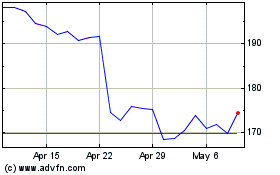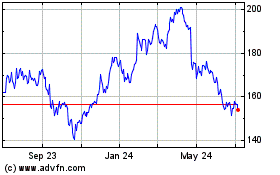WASHINGTON—U.S. President Barack Obama will strive to put some
final touches on key elements of his foreign-policy agenda and log
progress on unfinished priorities as he leaves for Asia on Friday
to plunge into a month of international summits.
Mr. Obama will attend a series of gatherings with world leaders,
starting with this weekend's Group of 20 leading nations talks in
China, that will provide one of his last opportunities to engage
counterparts before leaving office. On the president's agenda will
be issues ranging from the economy, trade and climate change to
Islamic State, Syria, North Korea and the South China Sea.
Mr. Obama will meet Saturday with Chinese President Xi Jinping,
ahead of his final summit of G-20 leaders in Hangzhou beginning
Sunday. Next week, at a meeting of leaders of the Association of
Southeast Asian Nations, he will hold one-on-one talks with the
contentious Philippine President Rodrigo Duterte. That meeting will
take Mr. Obama to Laos, making him the first sitting U.S. president
to visit the country.
Later this month, Mr. Obama will make his last appearance as
president at the United Nations General Assembly, where he plans to
address nuclear nonproliferation and the international refugee
crisis.
The G-20 gathering in the past has played a role in addressing
global economic tumult and has served as a forum for pivotal policy
debates, such as one in recent years over austerity measures. This
year, the gathering also will provide a backdrop to Mr. Obama's
broader goals in Asia when the longevity of his approach there is
in doubt, mainly due to opposition in Congress to a new trade pact
with Asia-Pacific nations.
The Trans-Pacific Partnership, or TPP, is a cornerstone of Mr.
Obama's so-called Asia "rebalance," which has aimed to strengthen
U.S. relations with China while establishing closer ties with other
countries in the region as a counterweight to Beijing's growing
influence.
Republican leaders, whose support for the pact is critical
because many Democrats oppose it, have said it won't come up for a
vote during the remainder of Mr. Obama's presidency.
The president plans to make the case for the trade deal
throughout his trip, and White House officials said they still see
a path to legislative approval for the pact.
"In this part of the world, which is the largest emerging market
in the world, TPP is seen as a litmus test for U.S. leadership,"
said Ben Rhodes, a deputy national security adviser, adding that
"it would be seen as a significant setback, I think, for American
leadership if we don't move forward."
China isn't part of the trade deal. The White House plans for
Messrs. Obama and Xi to discuss a range of tensions in the
U.S.-China relationship, including tensions in the South China Sea,
the economy, human rights and cybersecurity.
One of Mr. Obama's top economic priorities at the G-20 summit
will be to push China to tackle excess capacity in steel and other
sectors that is undermining international markets and contributing
to anemic global growth.
The issue has become one of the biggest trade irritants for
Washington and other capitals, who complain Beijing isn't doing
enough to address the problem.
"Excess capacity distorts markets and the environment, harms our
workers, and runs counter to our efforts to achieve strong,
sustainable, and balanced growth," Treasury Secretary Jacob Lew,
who also will be in China, said at a briefing this week.
The excess-capacity dispute is only one of several issues
aggravating trade tensions between China and the U.S. The yuan has
fallen to five-year lows against the dollar. Cyberattacks on
corporations are straining relations. And U.S. firms complain that
regulatory barriers are restricting their access to the Chinese
market even as Chinese companies, many of them subsidized by the
state, amass an unprecedented level of international acquisitions
and investments.
White House officials said the meeting between Messrs. Obama and
Xi is likely to be their last. Mr. Obama hopes to gain a symbolic
commitment from Beijing on an area where the two countries have
found agreement: climate change. The U.S. and China are expected to
formally join the international climate-change agreement reached in
Paris in December.
While in Laos, Mr. Obama plans to meet Mr. Duterte, the new
president of the Philippines. Mr. Duterte's drug crackdown has
drawn U.S. admonitions on human rights, and the Philippine leader's
remarks on a range of issues have stirred controversy with critics
and allies alike. Nonetheless, White House officials said the
Philippines, as a treaty ally of the U.S., merits Mr. Obama's
attention, while cautioning that the U.S. president would speak
"quite directly" with Mr. Duterte.
"The president is certainly not going to pull any punches in
raising well-documented and relevant concerns when it comes to
human rights," White House press secretary Josh Earnest said
earlier this week.
Beyond Asia, Mr. Obama will use the G-20 summit to work on
lingering foreign-policy challenges. White House officials said he
would meet with Turkish President Recep Tayyip Erdogan on Sunday;
relations between the two allies have been strained following the
attempted coup in Turkey in July.
Mr. Obama is also expected to discuss Ukraine and Syria with
Russian President Vladimir Putin, though the White House hasn't
scheduled a formal meeting between the two leaders.
Write to Carol E. Lee at carol.lee@wsj.com and Ian Talley at
ian.talley@wsj.com
(END) Dow Jones Newswires
September 01, 2016 13:35 ET (17:35 GMT)
Copyright (c) 2016 Dow Jones & Company, Inc.
Nucor (NYSE:NUE)
Historical Stock Chart
From Mar 2024 to Apr 2024

Nucor (NYSE:NUE)
Historical Stock Chart
From Apr 2023 to Apr 2024
